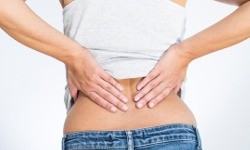 Kidney Pain
Kidney Pain
Pain in the kidney area can be an indicator of various kidney conditions, but may not be immediately distinguishable from pain due to problems in other abdominal or pelvic organs.
Though a wide subject area common kidney problems are our speciality and we can assist people of all ages in this matter. Simply contact us for an appointment or speak to your GP.
Symptoms of Kidney Pain
Other Symptoms of a Kidney Infection
Kidney infection symptoms when linked with pain include a fever and/or chills, nausea or vomiting, diarrhoea, loss of appetite, lethargy and weakness.
Further symptoms may include cloudy or foul smelling urine, an urgent or frequent need to urinate, a painful or burning sensation when you go, or a feeling that your bladder won’t empty fully – but these symptoms can also indicate cystitis or an infection of the urethra, the tube from the bladder that takes urine out of the body.
Blood in the urine is a sign that you need to see a doctor immediately.
Causes of Kidney Pain
Treatment of a Kidney Infection
When symptoms start, you are recommended to drink plenty of water, to help wash out bacteria. You should also immediately avoid alcohol and other harmful substances, such as drugs or tobacco, to avoid damaging your kidneys further.
Diagnosis of Kidney Pain
Treatment of Kidney Pain
Surgery
If a serious complication occurs, surgery to remove some or all of one kidney may be necessary, possibly by keyhole surgery. Read more at keyhole laparoscopic nephrectomy
A healthy, normal life can be lived with one kidney.
